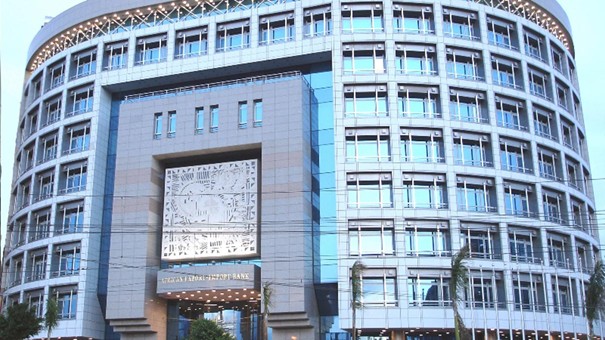
-
Afreximbank rejects Fitch’s credit rating cut, citing legal limits on debt actions
-
Bank says its financials follow global standards and its risk controls remain solid
-
African Peer Review Mechanism backs Afreximbank, questions Fitch’s sovereign loan view
Afreximbank responded today to Fitch Ratings’ recent downgrade of its long-term credit rating from BBB to BBB- with a negative outlook. The bank issued a statement saying the rating “is hinged on the erroneous view” of its role and legal framework.
The bank firmly rejected any suggestion that it is involved in sovereign debt restructuring for its member countries. It emphasized that its operations are guided by a founding treaty signed by 53 African states in 1993, which explicitly bars the bank from entering into any such negotiations.
Afreximbank underscored that this treaty defines its responsibilities, lending rules, and risk framework. It reminded Fitch and the broader market that it is legally bound to act within this shared governance structure, and many of its member countries are also shareholders.
Fitch had raised concerns that some sovereign borrowers might restructure their debt with Afreximbank, which it claimed could weaken the bank’s financial strength. The institution, led by President Benedict Oramah, dismissed this idea outright.
Fitch also flagged what it called a lack of transparency around risky loans. It pointed to a 7.1% non-performing loan (NPL) ratio at the end of 2024, above the 6% threshold considered high for a bank of its kind.
Afreximbank responded that its financial statements are fully aligned with International Financial Reporting Standards (IFRS), specifically IFRS 9, which governs how banks report and manage credit risk. The bank said its 2024 financials provide a clear breakdown of these figures, all reviewed and verified by external auditors.

The African Peer Review Mechanism (APRM), a body under the African Union, also stepped into the debate on June 6, defending Afreximbank and disputing Fitch’s conclusions.
The APRM criticized Fitch’s classification of the bank’s sovereign exposures to Ghana, South Sudan, and Zambia as non-performing. It called the decision flawed on legal, institutional, and analytical grounds. The group argued that these loans are part of intergovernmental cooperation frameworks and should not be viewed as regular commercial debt.
The APRM also emphasized that there has been no formal default on these loans. It said Fitch’s approach fails to consider Africa’s legal and institutional realities, and ignores the unique nature of intra-African development finance.
“The assumption that Ghana, South Sudan and Zambia would default on their loans to Afreximbank is inconsistent with the 1993 Treaty establishing the Bank to which Ghana and Zambia are both founding members, shareholders and signatories,” said the APRM, noting that both Ghana and Zambia were among the treaty’s original signatories and remain shareholders.
The APRM urged Fitch to review its rating criteria and to engage in technical talks with Afreximbank. This reaction comes at a time of growing friction between African institutions and international credit rating agencies. It also reignites a broader debate about the fairness and accuracy of global ratings, especially given the real consequences for borrowing costs, financial access, and reputational risk when ratings are downgraded.
For Afreximbank, this public response is about protecting its name, reassuring its partners, and maintaining market confidence. The bank stressed that it holds a strong capital base, has robust guarantees in place, and maintains recognized risk controls, even acknowledged by Fitch in the same June 4 report.
Lire aussi
04/06/2025Fitch Cuts Afreximbank’s Long-Term Credit Rating to BBB-











Comments